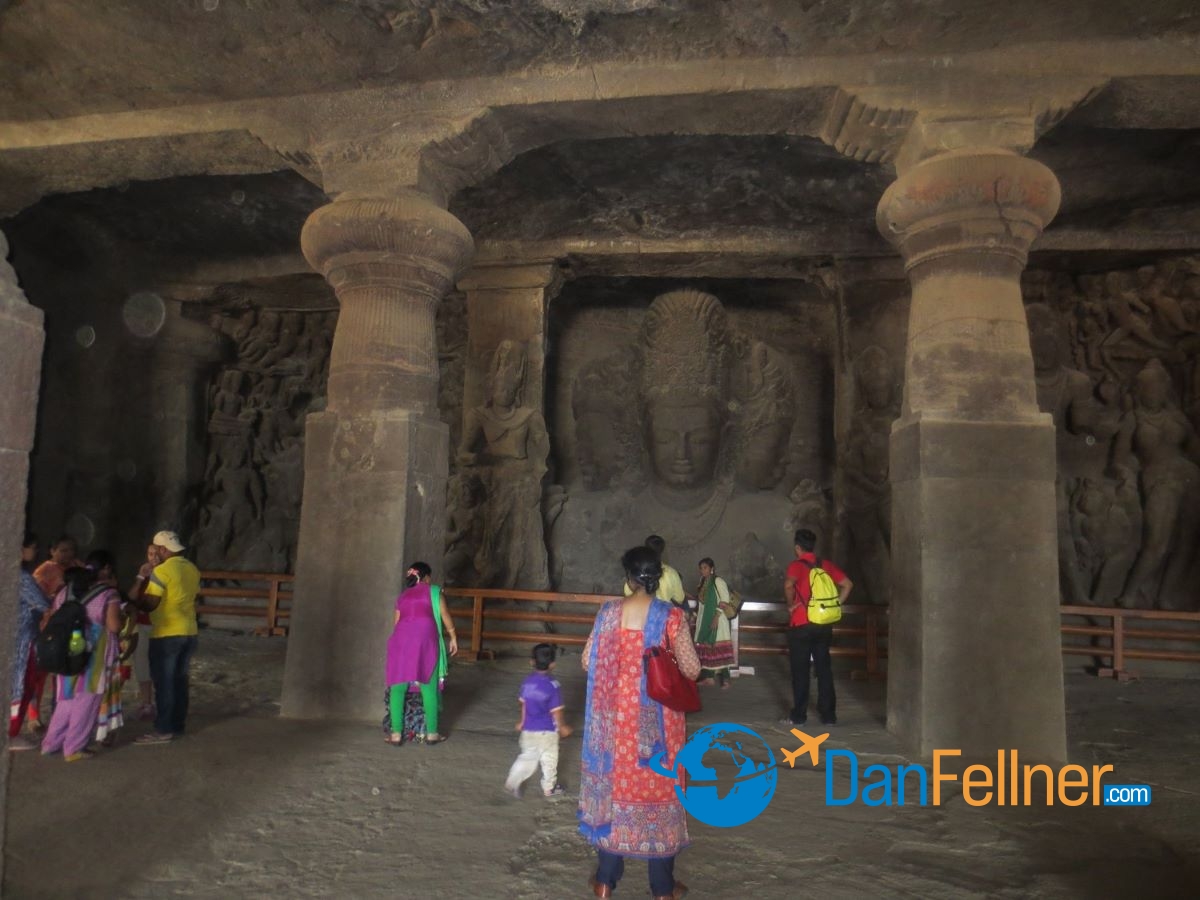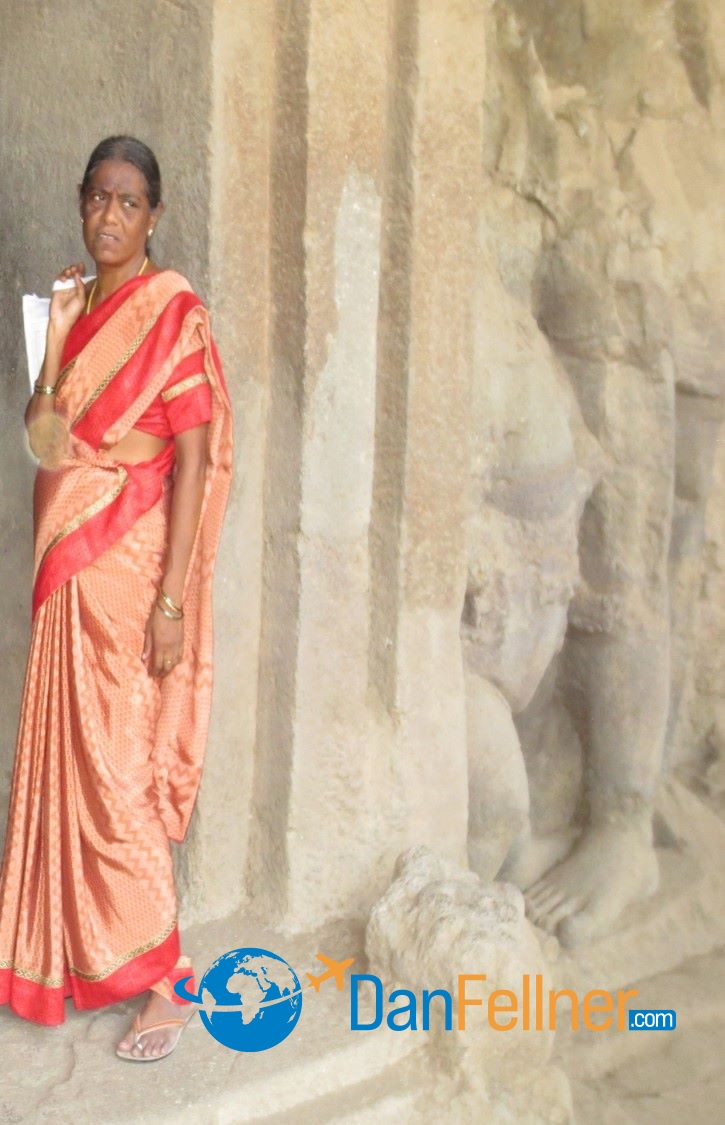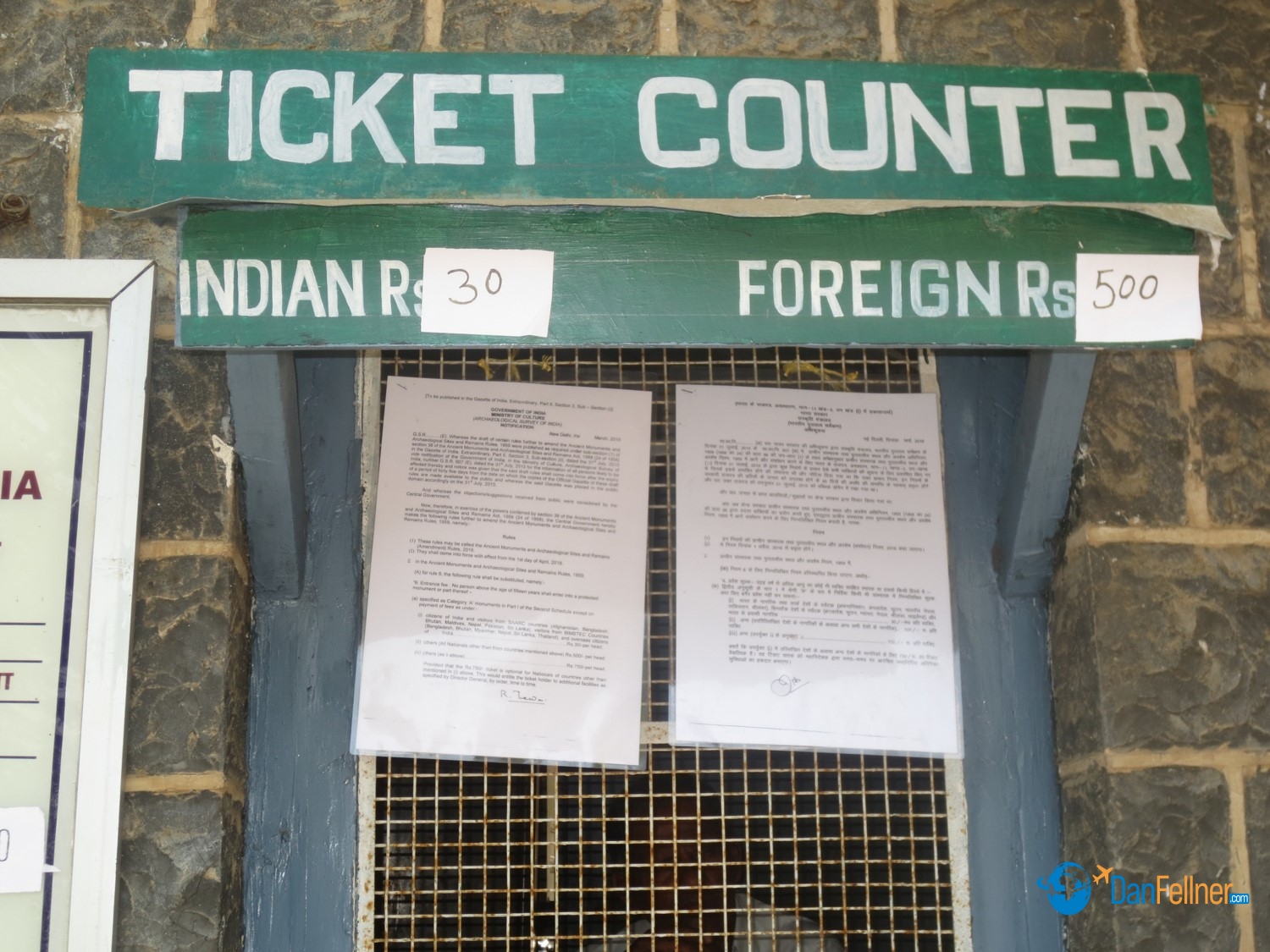Under-the-table cash reduces foreign surcharge at Elephanta Island
As someone who’s been to a lot of places, I’m used to paying a foreign “surcharge” at various sites and attractions. But I’ve never encountered such a huge disparity in price as the admission sign seen in the photo above indicates at the entrance to a place called Elephanta Island in India.
The charge for locals to enter these archaeological caves about a one-hour boat ride from Mumbai is 30 Indian rupees – about 44 U.S. cents.
But if you’re from a foreign country, the ticket costs more than 16 times that price – a whopping 500 rupees.

Inside the caves on India’s Elephanta Island near Mumbai.
India is a poor country and it’s perfectly fair for the locals to get a cheaper rate. I have no problem with that. But I balked at paying the 500 rupees – partly because of the principle involved, partly because I wasn’t sure if I had enough cash to get back to my Mumbai hotel that evening, and partly because I’m cheaper than a polyester suit on a Wal-Mart clearance rack.
Sensing my reluctance to fork over the rupees as I lingered at the entrance gate while looking into my wallet, a security guard inquired if I had some sort of problem.
I told him that I wasn’t sure if I could afford the 500 rupees to buy the ticket.
“How much do you want to spend?” he asked, as if I were negotiating to buy a fake Rolex at a flea market.
“How about 100 rupees?” I replied, as I removed a 100-rupee bill from my wallet.

The guard quickly snatched the bill out of my hands, stashed it in his pocket, and nodded for me to go through the gate. Before I had realized what happened, I had bribed my way inside the archaeological site of Elephanta Island for one-fifth of the normal price paid by foreigners. I’m guessing I wasn’t the first visitor – or the last – whose money ended up in the guard’s pocket that day.
Indeed, bribery is a major problem in India. A study conducted by Transparency International found that more than 62 percent of Indians have paid bribes – known in the Hindi language as “rishwat” — to public officials.
Yes, I felt a little guilty about shortchanging the Indian Ministry of Culture 500 rupees for the privilege of entering the caves on Elephanta Island. But not that guilty. At the end of the day, I had an extra 400 rupees in my pocket, enough for a decent dinner. And I had experienced a local custom many Indians must endure on a regular basis.
Now if only I could figure out how to deploy my newfound bribery skills here in the States at a movie theater, concert or Diamondbacks’ game …

Copyright © Dan Fellner 2016



